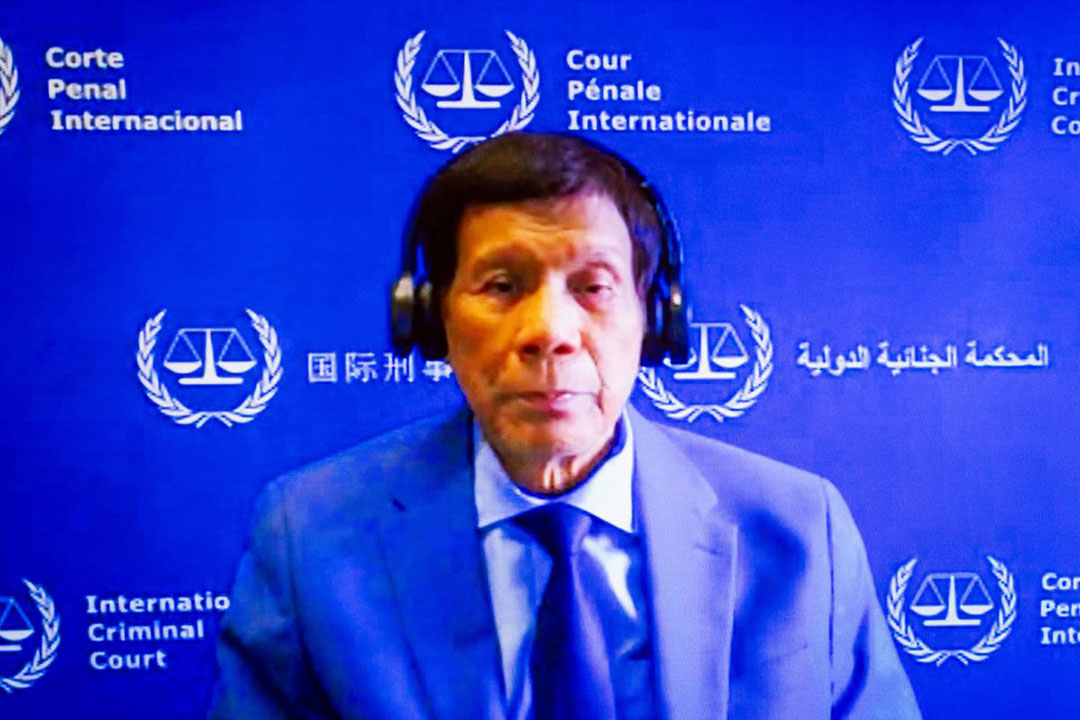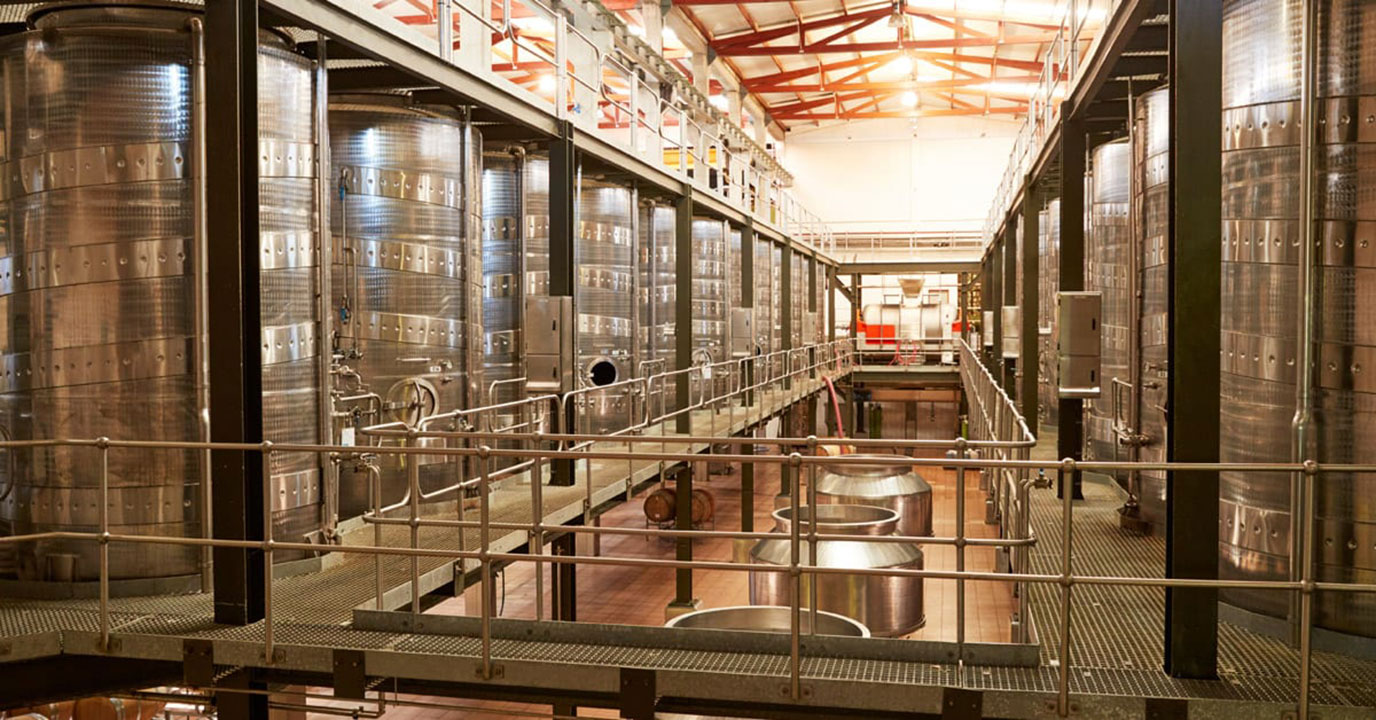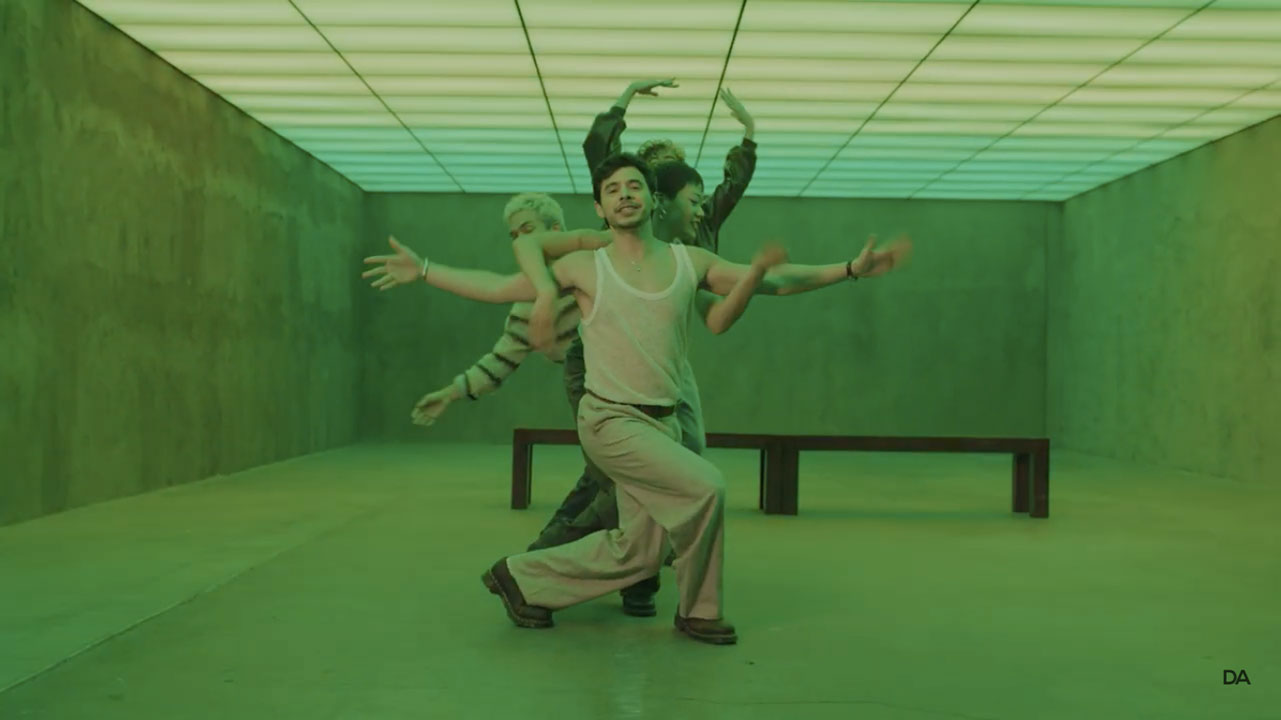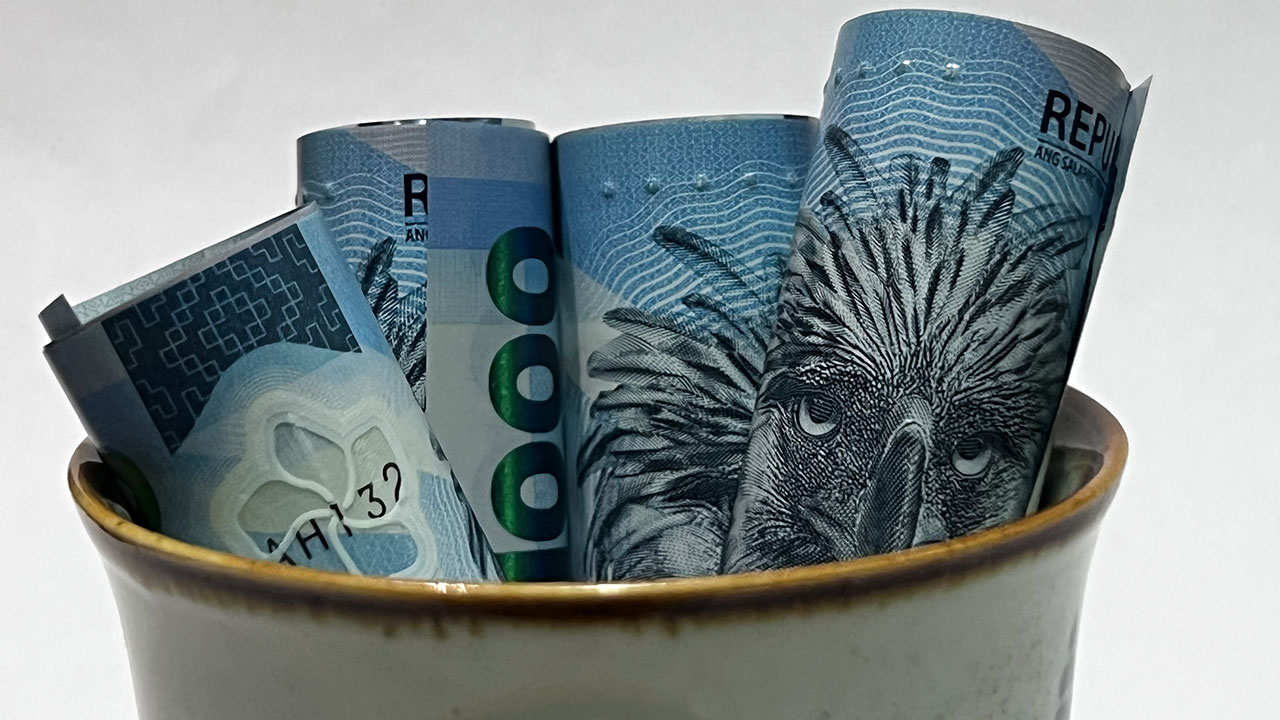
Upgrade to High-Speed Internet for only ₱1499/month!
Enjoy up to 100 Mbps fiber broadband, perfect for browsing, streaming, and gaming.
Visit Suniway.ph to learn
 FORMER PRESIDENT RODRIGO R. DUTERTE — INTERNATIONAL CRIMINAL COURT / COUR PÉNALE INTERNATIONALE
FORMER PRESIDENT RODRIGO R. DUTERTE — INTERNATIONAL CRIMINAL COURT / COUR PÉNALE INTERNATIONALE“On 12 March 2025, Mr. Rodrigo Roa Duterte (‘Mr. Duterte’), born on 28 March 1945, was surrendered to the custody of the International Criminal Court (ICC or ‘the Court’). He was arrested by the authorities of the Republic of the Philippines (‘the Philippines’) in accordance with an arrest warrant issued by Pre-Trial Chamber I (‘the Chamber’) for charges of murder as a crime against humanity.
“On 10 February 2025, the Office of the Prosecutor of the ICC (‘the Prosecution’) applied for an arrest warrant against Mr. Duterte for the crimes against humanity of murder, torture and rape. The Chamber, composed of Presiding Judge Iulia Antoanella Motoc and Judges Reine Adélaïde Sophie Alapini-Gansou and María del Socorro Flores Liera, assessed the material submitted by the Prosecution and found reasonable grounds to believe that Mr. Duterte is individually responsible as an indirect co-perpetrator for the crime against humanity of murder, allegedly committed in the Philippines between 1 November 2011 and 16 March 2019.
“The Chamber found that there was an attack directed against a civilian population pursuant to an organizational policy while Mr. Duterte was the head of the Davao Death Squad (DDS), and pursuant to a State policy while he was the President of the Philippines. Moreover, there are reasonable grounds to believe that this attack was both widespread and systematic: the alleged attack took place over a period of several years and resulted in thousands of deaths. In the arrest warrant, the Chamber focused on a sample of alleged incidents to facilitate its analysis.
“Concerning Mr. Duterte’s alleged role as the head of the DDS and subsequently as the President of the Philippines, the Chamber found reasonable grounds to believe that he, jointly with and through other persons, agreed to kill individuals they identified as suspected criminals or persons having criminal propensities, including but not limited to drug offenders, initially in Davao and subsequently throughout the country.
“A hearing will be scheduled in due course for Mr. Duterte’s initial appearance before the Court. During this hearing, the Chamber will confirm the identity of the suspect and the language in which Mr. Duterte is able to follow the proceedings. The Chamber will also satisfy itself that Mr. Duterte has been informed of the crime which he is alleged to have committed, and of his rights under the Rome Statute (‘the Statute’), which is the Court’s founding treaty.
“The ICC Registrar, Mr. Osvaldo Zavala Giler, thanked the authorities of the Philippines for their commitment to upholding international accountability mechanisms, and the authorities of the Host State, the Netherlands, for their cooperation and support.” — all of the above, quoted verbatim from the International Criminal Court/Cour Penale Internationale Press Release, March 12, 2025).
‘HUMPTY DUMPTY SAT ON A WALL…’
“You do not scare me that you will jail me in the International Criminal Court. I will never allow myself to answer these whites,” then-President Duterte said in a speech to military cadets and reservists (Reuters, Dec. 20, 2019).
“The maverick former mayor has repeatedly taunted the ICC and threatened to slap or arrest its prosecutor, who in February 2018 announced a preliminary examination was being conducted into the drugs killings. Duterte responded by unilaterally cancelling his country’s membership of the court a month later, without legislative approval, saying it had deprived him of a presumption of innocence. Amnesty International called his move ‘misguided’ and ‘cowardly.’ The ICC’s prosecutor says jurisdiction applies to crimes committed while a country is a member,” Reuters reported (Ibid.).
Remember that Duterte was a last-minute candidate in the 2016 presidential elections. He had repeatedly said he was not interested in running for president despite calls from his supporters and party-mates. But after much to-and-fro, PDP-Laban party mate Martin Diño of the Volunteers Against Crime and Corruption (VACC) suddenly officially withdrew his candidacy for president in the 2016 elections and named Davao City Mayor Rodrigo Duterte as his substitute (GMA News, Oct. 29, 2015).
“Duterte had promised during a foul-mouthed campaign to change from a centralized system to a federal parliamentary form of government, a policy that has been popular in provinces far from ‘Imperial’ Manila,” the Guardian related (May 10, 2016). “He will push to rewrite the constitution and change to a federal system of government,” his spokesman said. Indeed, popular support from the regions for this promised decentralization of power, and Duterte’s claim to Davao City’s exemplary progress and sustained peace during his almost-uninterrupted three decades of ruling Davao directly and through his children Sara and Sebastian, made him win (mindanews.com, Oct. 16, 2024).
For the Philippines to be like Davao — that was Rodrigo Duterte’s template for his presidency. Did that include the notorious Davao Death Squad (DDS)? (Reuters, May 26, 2016).
“Mr. Duterte has shocked the political establishment in recent weeks, surging to a clear lead in opinion surveys before the May 9 election with a campaign full of swear words and promises to end crime by killing tens of thousands of criminals,” even foreign news noted (abc.net.au/, April 28, 2016). “Mr. Duterte has also boasted about running vigilante death squads during his many years as mayor of Davao, the biggest city in the southern Philippines. He once said the death squads had killed 1,700 people” (Ibid.).
‘HUMPTY DUMPTY HAD A GREAT FALL…’
“The ICC is alleging that Duterte is criminally responsible for two sets of killings:
“Murder of at least 19 persons, allegedly drug pushers or thieves, killed by members of the Davao Death Squad in various locations in or around Davao City, Philippines between 2011 and 2016;
“Murder of at least 24 persons, allegedly criminals, such as drug pushers or thieves or drug users, killed by or under the supervision of members of the Philippines law enforcement, sometimes with the assistance of persons who were not part of the police, at various locations in the Philippines between 2016 and 2019” (Philstar.com, March 14, 2025).
A timeline of case filed at the ICC against Rodrigo Duterte on extra-judicial killings in his “drug war” (from Inquirer.net, March 12, 2025):
2017: ICC Complaint Filed Against Duterte
April 24 – Lawyer Jude Sabio filed a case against Duterte at the ICC, accusing him of mass murder. Sabio represented Edgar Matobato, a self-proclaimed member of the Davao Death Squad, who alleged that Duterte orchestrated killings in Davao City as mayor.
June 6 – Former Senator Antonio Trillanes IV and then-Magdalo party-list Representative Gary Alejano also filed a supplemental complaint, linking Duterte to widespread drug war-related killings.
2018: ICC Launches Preliminary Examination
February – The ICC initiated a preliminary examination into alleged crimes against humanity related to Duterte’s drug war.
March 17 – In response, Duterte announced the Philippines’ withdrawal from the ICC’s Rome Statute, arguing that the tribunal had no jurisdiction over him. However, under ICC rules, the withdrawal would only take effect one year later.
2019: Philippine ICC Withdrawal Takes Effect
March 17 – The Philippines’ ICC withdrawal became official, perceived as Duterte’s attempt to evade accountability. However, the ICC maintained jurisdiction over crimes committed from Nov. 1, 2011, to March 16, 2019 — the period when the country was still a member.
2020: Key Witness Withdraws Case
Jan. 15 – Jude Sabio retracted his ICC complaint, calling it “propaganda.” He claimed that former Senators Trillanes and Leila de Lima had influenced him.
Jan. 18 – De Lima, then in detention, denied Sabio’s claims and revealed that she had filed a separate ICC case against Duterte in October 2017.
2021: ICC Authorizes Full Investigation
Sept. 15 – The ICC’s pre-trial chamber approved a formal investigation, covering crimes allegedly committed between July 1, 2016, and March 16, 2019.
Nov. 10 – The Philippine government requested the ICC to halt its investigation, claiming the local justice system was addressing drug war-related killings.
Nov. 18 – ICC Chief Prosecutor Karim Khan temporarily suspended the probe to review the Philippine government’s deferral request.
2022: ICC Resumes Probe Amid Duterte’s Exit
June 24 – Dissatisfied with the Philippine government’s efforts, Khan requested to resume the ICC probe, citing inadequate investigations into drug war deaths, including those under Duterte’s tenure as Davao City mayor.
June 30 – Duterte’s six-year presidency ended, with Ferdinand Marcos, Jr. assuming office. Despite stepping down, Duterte remained a divisive figure in Philippine politics.
2023: ICC Investigation
Jan. 26 – The ICC pre-trial chamber officially reopened its investigation, stating that Philippine authorities failed to conduct sufficient probes into drug war killings.
Nov. 24 – President Ferdinand Marcos, Jr. announced that his administration was reviewing the possibility of rejoining the ICC.
2024: Key Testimonies Against Duterte
Jan. 31 – Retired police officer Arturo Lascañas, a self-confessed DDS member, revealed he had testified before ICC investigators. He accused Duterte of masterminding DDS operations and identified key figures involved in the bloody anti-drug campaign.
Nov. 14 – Marcos reiterated that the Philippines would not cooperate with the ICC investigation into Duterte’s drug war.
2025: ICC Arrest Warrant Looms Over Duterte
March 7 – Duterte traveled to Hong Kong, leading a PDP-Laban senatorial campaign sortie among overseas Filipino workers. He defended his actions as president, emphasizing that he acted for the Filipino people amid growing speculation about an ICC arrest warrant.
March 9 – The Marcos administration stated it was “prepared for any eventuality” should the ICC issue an arrest warrant for Duterte, according to Presidential Communications Office Secretary Jay Ruiz.
March 11 – Duterte was served a warrant of arrest from the ICC at the Ninoy Aquino International Airport upon his arrival from Hong Kong, and was flown to The Hague the same day.
March 14 – Duterte appeared for a pre-trial hearing virtually, with his former Executive Secretary and lawyer, Salvador Medialdea, serving as his legal counsel.
March 17 – The former President’s camp revealed the lawyers that will form part of his legal counsel, which will be led by British lawyer Nicholas Kauffman. Ex-Palace Spokesperson Harry Roque and Medialdea will serve as supporting lawyers.
Vice-President Sara Duterte said her father was forcibly taken — in a “warrantless arrest” — by the Philippine National Police upon his arrival in Manila from Hong Kong on March 11.
“There was a warrant of arrest, and it was issued by an international court, of which we were a member. So, this is not a warrantless arrest — because there was indeed a warrant covering the arrest of the former president,” Joel Butuyan, a lawyer accredited by the ICC, explained at a Palace press conference, saying the arrest was valid under Philippine laws even if the Philippines was no longer an ICC member.” (Inquirer.net, March 21)
Butuyan also pointed out that, “according to a 2015 ICC decision, an arresting country has no obligation to follow the entire procedure in Article 59, as long as the core provisions of the article are followed. So, it’s not necessary to go through domestic judicial authority, as long as the substance of Article 59 is complied with, which includes verifying the identity of the accused and ensuring the accused’s rights are respected. In the case of former President Duterte’s arrest, he was read his Miranda rights,” Butuyan said. This means a local court order was also no longer necessary to enforce the ICC-issued warrant (Ibid.).
“All the King’s horses and all the King’s men,
could not put Humpty Dumpty together again.”
Amelia H. C. Ylagan is a Doctor of Business Administration from the University of the Philippines.




